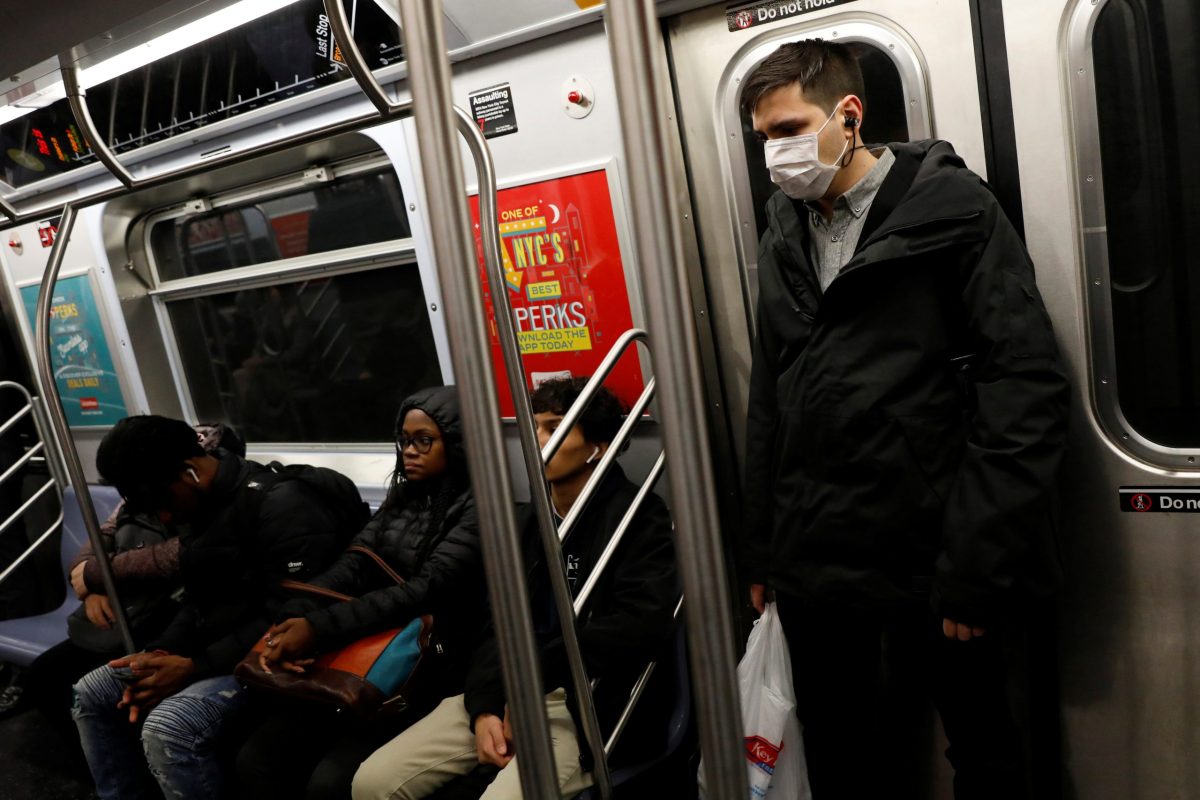BY MATTHEW LAVIETES
As Michael Rance watched his childhood neighborhood of Kirkland in Washington State become the focal point for coronavirus in the United States, he stocked up on four weeks of food and bought seeds to grow on his balcony.
After the number of deaths in a Kirkland nursing home rose to 14 and an uptick of cases in New York, Rance became more worried and is planning to buy another month’s worth of supplies in case the city is placed on a lockdown.
“It’s scary,” said Rance, 26, who works for a financial literacy non-profit and moved to New York last month. “This is a natural disaster that humans don’t really have control over.”
Health professionals and psychologists have noted an increase in the levels of fear as coronavirus, or COVID-19, spreads globally, dominating conversations among friends and family. A light cough or sneeze in public now turns heads.
Major European stock markets dived more than 7% on Monday, and U.S. and Japanese indexes over 5% after Saudi Arabia launched an oil price war with Russia that sent investors spooked by the coronavirus outbreak running for the exits.
“You know what’s worse than the virus – the anxiety,” New York Governor Andrew Cuomo said at a news conference on Saturday, where he declared a state of emergency for New York.
Physicians are receiving patients concerned they have the virus when instead they have a mild illness like a cold.
The Anxiety and Depression Association of America has set up a resource page on coronavirus anxiety to offer tips and strategies from mental health professionals.
“STAY RATIONAL”
“Just this week, I’ve probably had three to four people without any prompting from me say: ‘Hey should I be worrying about this?'” said Robert McLean, an internal medicine physician and rheumatologist at Northeast Medical Group of Yale New Haven Health and president of the American College of Physicians.
“We want people to stay as calm and rational as they can be,” McLean told the Thomson Reuters Foundation.
The coronavirus is stoking anxiety because there so many unknowns and currently no approved vaccines or treatments, said Maggie Mulqueen, a psychologist in private practice in Brookline, Massachusetts.
She said the virus has come up in “every single session” in the past two weeks.
The number of confirmed U.S. cases of coronavirus reached nearly 550 on Sunday, including 22 deaths. Worldwide, more than 100,000 cases have been, causing over 3,600 deaths.
The U.S. Centers for Disease Control and Prevention (CDC) advised Americans to prepare for a domestic acceleration of the virus while President Donald Trump has repeatedly assured Americans that the risk in the United States was “very low.”
“One of the ways to reduce anxiety is to ask what is the worst thing that could happen?” Mulqueen told the Foundation.
“Usually it’s not life or death. But this time, I can’t give that reassurance.”
Rance said after watching the coronavirus in Wuhan, China, preparing for the worst has helped him cope with his fear.
“It’s something I’m trying to deal with as reasonably as I can but not let it affect my thoughts at every single moment,” Rance said.
So, how often does he in fact think about the virus?
“About a dozen times a day,” he said.



































